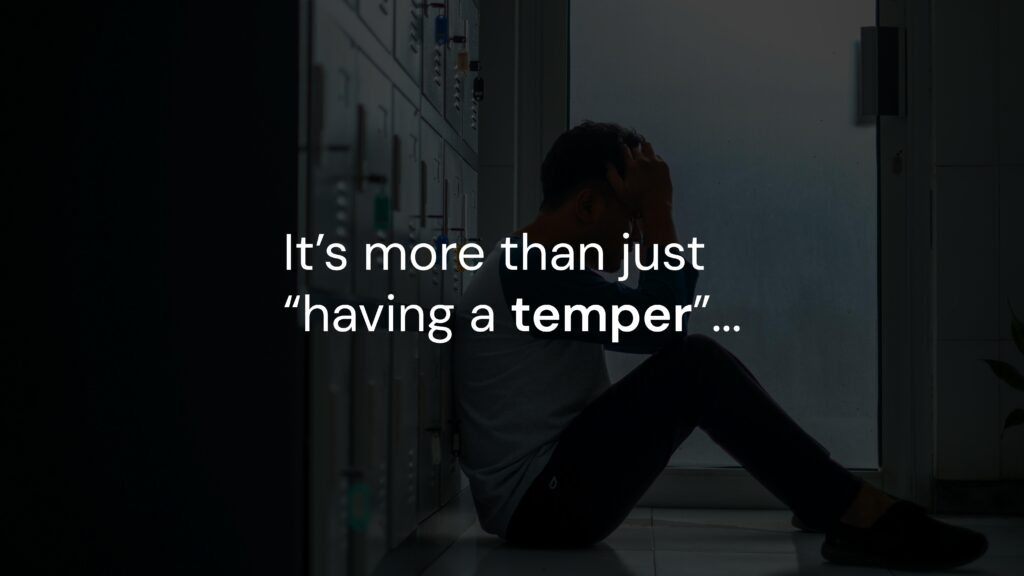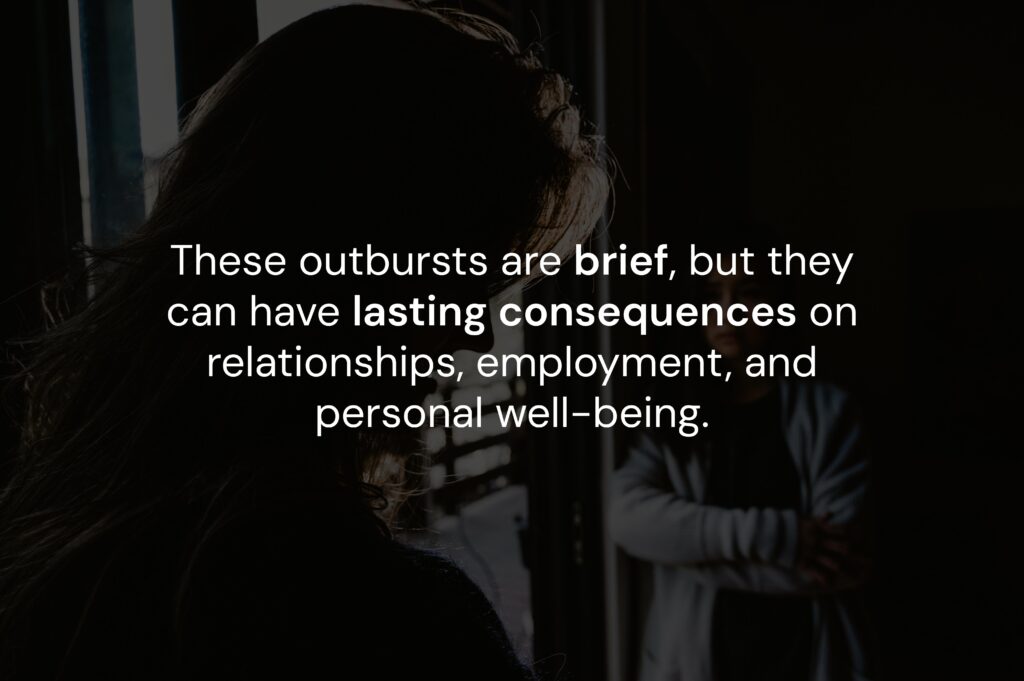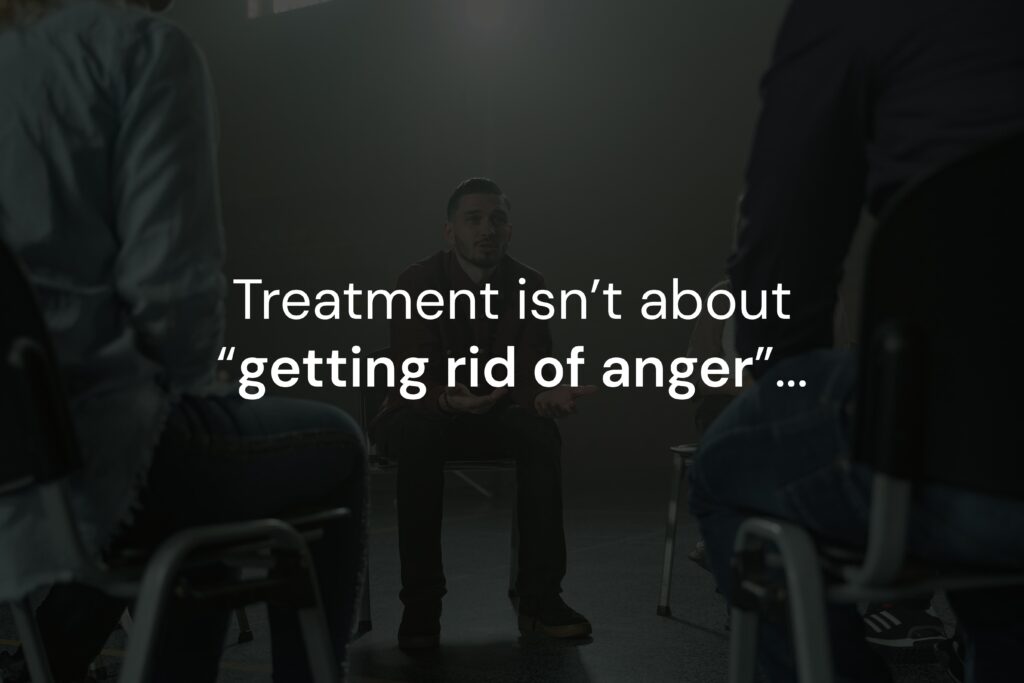Persistent anger isn’t just a mood, it’s a pattern. If you’re constantly asking, “Why am I so angry all the time?”, the issue likely runs deeper than temporary stress. Chronic anger often points to unresolved trauma, mental health issues, or a buildup of emotional strain that’s been left unaddressed. The good news is that this kind of anger has real solutions.

Why Does Anger Feel Constant?
Anger that doesn’t seem to fade usually stems from a combination of emotional, psychological, and physical stressors.
One major cause is unresolved trauma. People who’ve experienced emotional abuse, neglect, or major losses often carry deep-seated resentment or fear. Instead of expressing vulnerability, they may lash out to protect themselves from feeling exposed.
Another contributor is chronic stress. Tight deadlines, financial struggles, or strained relationships elevate cortisol levels in the body. Over time, this constant stress floods your nervous system, reducing your ability to regulate your emotions.

Mental health conditions also play a critical role. Depression, for example, often hides beneath persistent irritability. Anxiety disorders make people feel on edge, which can tip into frustration. And some individuals may unknowingly suffer from Intermittent Explosive Disorder (IED), a condition marked by impulsive and intense anger outbursts.
Substance use is another factor. Alcohol and drugs lower inhibitions and disrupt emotional control. During recovery, unresolved anger often resurfaces, which is why many people benefit from structured anger management therapy.
What Are the Signs of Chronic Anger?
Constant anger doesn’t always involve yelling or breaking things. It often shows up in subtle, damaging patterns. Common signs include:
- Frequent irritation over minor events
- Feeling emotionally tense or “on edge”
- Shutting down or withdrawing to avoid confrontation
- Passive-aggressive comments or sarcasm
- Regret after outbursts, but repeating the cycle
- Physical tension like jaw clenching or rapid breathing
These behaviors affect relationships, job performance, and overall health. Left untreated, they increase the risk of high blood pressure, insomnia, and even heart disease.
How to Take Back Control
Recognizing the pattern is the first step toward healing. Once you’ve asked yourself, “Why am I so angry all the time?”, it’s time to take action.

Mindfulness techniques also help. Breathing exercises, meditation, and grounding tools calm the nervous system and improve emotional regulation. Research shows that even 10 minutes of daily breathwork can reduce reactivity in people with chronic anger.
Physical health plays a supporting role. Aim for:
- 30 minutes of movement each day (like walking, yoga, or strength training)
- 7–9 hours of sleep nightly
- Balanced meals with protein, complex carbs, and mood-supporting nutrients like magnesium and omega-3s
The more stable your body feels, the easier it is to manage emotional spikes.
How to Prevent Emotional Escalation
It’s possible to interrupt the anger cycle with simple, practiced strategies.
Start with a “cool-off” routine. When you notice anger rising:
- Step away from the situation
- Take five deep breaths in and out through your nose
- Name what you’re feeling (e.g., “I feel disrespected,” or “I feel overwhelmed”)
- Re-enter the conversation or situation only when your body feels calmer
This technique engages the rational part of the brain and reduces the likelihood of saying something damaging.
Another helpful tool is journaling. After each anger episode, write down:
- What triggered the feeling
- What your body felt like (tight chest, shaking hands)
- What you said or did
- What you wish you had done instead
This practice builds self-awareness and gives you patterns to bring into therapy.
Opening Up Helps
Anger often masks deeper emotions like fear, sadness, or shame. Talking to a therapist or trusted friend can release pressure and prevent long-term emotional buildup.
You don’t need a perfect script. A simple statement like, “I’ve been feeling angry a lot lately and I want to understand why,” is a powerful start. Being honest not only helps you process your feelings, it helps others support you without judgment.
What Is IED?
Some people experience intense, uncontrollable anger outbursts that seem to come from nowhere. This may be a sign of Intermittent Explosive Disorder. Learn how to recognize the signs and explore treatment in our full guide: What Is IED? Exploring Intermittent Explosive Disorder
How to Calm Down Anxiety and Anger
If your anger often feels tied to anxiety or panic, you’re not alone. Grounding and breathing techniques can help calm your body before things escalate. Get practical tips in How to Calm Down Anxiety and Anger in the Moment





.png)
